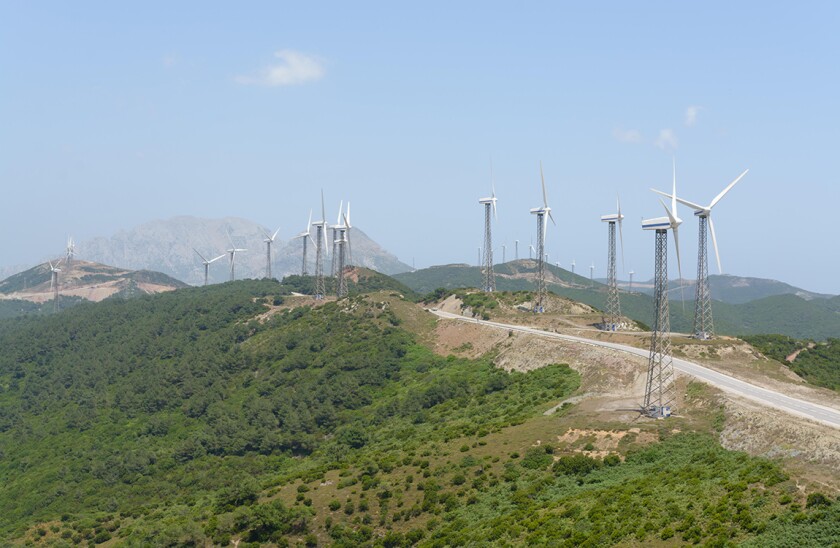Political and economic disruption in North Africa means that Morocco is increasingly seen as the golden child for renewables investment as investors recognise the region’s potential as an energy export powerhouse on Europe’s doorstep, according to bankers and analysts.
The North Africa region is a solar factory waiting to be turned on. Equipping just 1% of the Saharan desert area with concentrated solar power plants would — in theory — meet the energy demands of Europe, the Middle East and Africa, Amin Mohseni-Cheraghlou, a macroeconomist at the Atlantic Council’s GeoEconomics Center, told GlobalMarkets.
Solar will also be the foundation of a transformational green hydrogen industry. But where this solar power is based matters, and as an investment destination Morocco is increasingly stealing the limelight.
“Morocco is one of the markets that has the greatest potential in the world to produce green hydrogen at a [low] ‘levelised’ cost,” says Antoine Salle de Chou, head of operations in Morocco for the European Bank for Reconstruction and Development, noting that this was due in part to the country’s incredible endowment of solar irradiance and wind potential.
Morocco’s solar is already world class. The Bank is financing wind assets to make that energy source more competitive, including the repowering of the Koudia Al Baida wind farm in the north of the country with a senior loan of up to €44m.
The green hydrogen market has such huge growth potential that there is room for multiple producers. “[But] there is a high need for fixed investments so it will be about where the setup is best and where the regulation is more accommodating,” says Heike Harmgart, managing director for the Southern and Eastern Mediterranean region at the Bank.
Morocco is finalising the 'Morocco offer,' a framework specifically designed for investors seeking to develop hydrogen projects. The country’s new Investment Charter offers firms a subsidy of up to 30% of the equity investment. Understandably, investors' focus has shifted away from Libya, Algeria, and Tunisia. Even Egypt — a first mover in green hydrogen — is losing some of its lustre amid a serious bout of economic and political volatility.
Egypt was once a leader in the region, signing eight framework agreements to develop green hydrogen and ammonia projects following COP27. But Lerato Monaisa, senior analyst at BMI, said very few of these agreements had been translated into projects. There are only two green hydrogen projects under construction with a combined capacity of 2.1GW, according to BMI.
Morocco has a 10GW green hydrogen project valued at over $10bn, which BMI expects to begin construction in 2025. “Morocco is basically becoming the safe country in North Africa for all these massive investments to go into,” Mohseni-Cheraghlou told GlobalMarkets. “German and Dutch companies are coming in strong on green hydrogen.”
Critics are less enthusiastic about the green hydrogen potential from broader development concerns in the region. “While all the attention is on the green potential of it, we forget the fundamental governance and social dimensions to these projects on how they will be managed and how they will serve the local population,” said Rabah Arezki, Director of Research at the French National Center for Scientific Research.
There has been little diversification in terms of how energy sector projects are run in the region, he said. “For these projects to yield any social impacts, I would urge these MDBs to give us much more information about the jobs involved, how transparently the revenues will be distributed, how this time will be any different,” he added.
